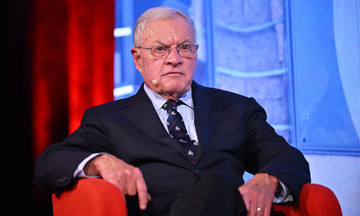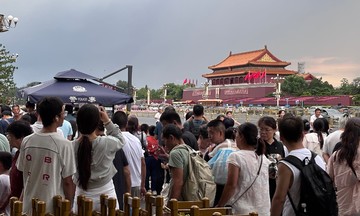Thailand's Prime Minister Paetongtarn Shinawatra was suspended from office on 1/7 by the Constitutional Court pending an investigation into a controversial phone call with Cambodian Senate President Hun Sen last month. During the call, Paetongtarn addressed Hun Sen as "uncle" and referred to the Commander of Thailand's 2nd Army Region as a member of the "opposition."
Thirty-six senators petitioned the court, accusing Paetongtarn of violating the constitution and ethical standards with her negative remarks about the army commander and her perceived deference to Hun Sen amid border tensions between the two countries.
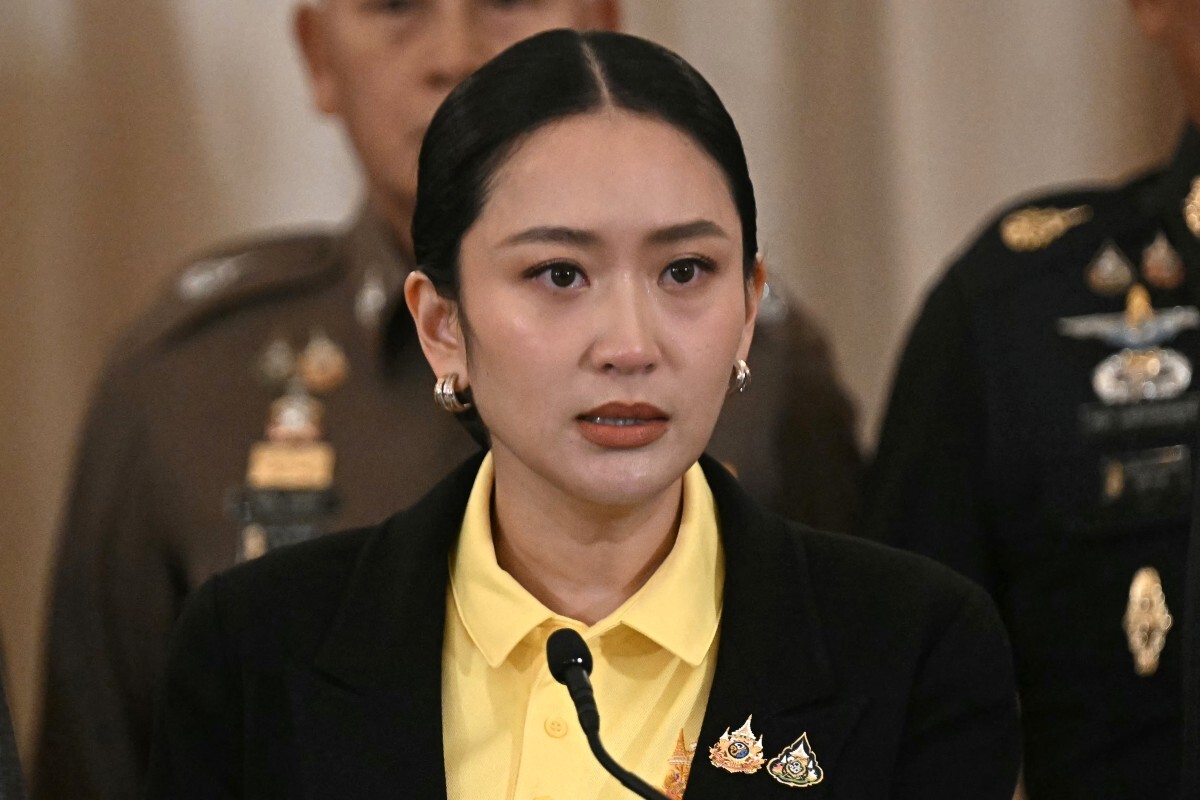 |
Thailand's Prime Minister Paetongtarn Shinawatra during a press conference in Bangkok on 19/6. Photo: AFP |
Thailand's Prime Minister Paetongtarn Shinawatra during a press conference in Bangkok on 19/6. Photo: AFP
Paetongtarn's predecessor, Srettha Thavisin, also faced a Constitutional Court petition from 40 senators alleging ethical violations for appointing the Shinawatra family lawyer, Pichit Chuenban, to the cabinet. In August 2024, Srettha was found guilty and removed from office less than a year into his term.
Srettha was the 4th Thai prime minister in 16 years to be removed from office following a Constitutional Court ruling. Paetongtarn now faces the same fate if the court rules against her in the coming months.
This political turmoil comes at a difficult time for the Thai economy, according to CNA commentator Harrison Cheng.
In mid-June, the World Bank (WB) lowered its growth forecast for the Thai economy from 2.9% to 1.8% for 2025, as the country's three main growth drivers faltered.
The first driver, tourism, a long-time government priority, is now showing weaknesses as Thailand faces increasing competition from neighboring countries.
Chinese tourists, a key source of revenue, have become hesitant to visit Thailand due to safety concerns related to scams and shootings. In October 2023, a shooting by a 14-year-old at the Siam Paragon shopping mall in Bangkok left at least three dead, including a Chinese tourist, and several injured.
While the border tensions with Cambodia do not pose a direct security risk to tourists in Bangkok, Phuket, and other popular destinations, they contribute to a sense of unease. The conflict in the Middle East has also disrupted flights to Southeast Asia, threatening to reduce tourist arrivals to Thailand in the coming months.
Recent bomb discoveries in Phuket and Krabi have also raised concerns about the potential spread of separatist insurgencies in southern Thailand, although there is little indication of this happening.
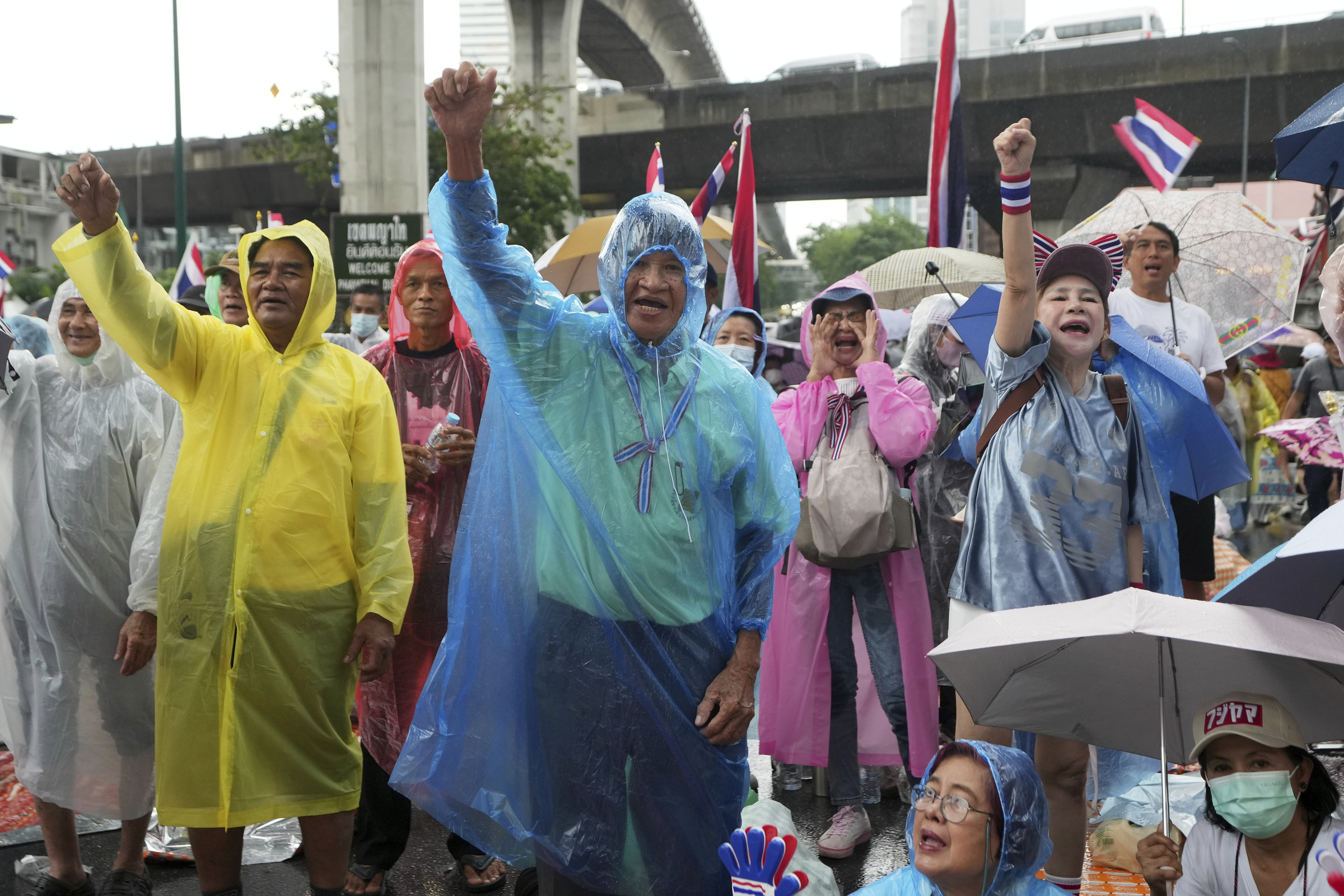 |
Thai citizens protest against Paetongtarn in Bangkok on 28/6. Photo: AP |
Thai citizens protest against Paetongtarn in Bangkok on 28/6. Photo: AP
Domestic spending is also constrained by Thailand's high household debt, which reached 87.4% of GDP in the first quarter of this year, the highest in Southeast Asia.
In 2024, Thai commercial banks tightened lending criteria for car purchases and other consumer loans to mitigate risk, further weakening domestic car sales.
During last year's election campaign, Paetongtarn's Pheu Thai party pledged to distribute 450 billion baht (13.6 billion USD) to citizens to stimulate the economy. The Thai government launched the first phase of the cash handout program in September 2024 for welfare card holders and people with disabilities, followed by the second phase in January 2024 for senior citizens.
However, after Paetongtarn took office, the government postponed the third phase, which was intended to distribute funds to about 2.7 million Thai citizens aged 16-20 through e-wallets. The 157 billion baht (4.7 billion USD) budget for this phase will be redirected to other economic stimulus measures, including projects related to water management, transportation, tourism, support for exporters and small and medium-sized enterprises, job creation, and education and digital development.
The decision to postpone the third phase of the cash handout program has led to public disappointment. According to a May survey by the National Institute of Development Administration, about 60% of the more than 1,300 respondents supported continuing the program, while about 46% said they would be very angry if it was canceled.
The remaining economic driver, exports, is bracing for the potential impact of US President Donald Trump's tariffs on 9/7, when bilateral trade negotiations expire.
"Without an agreement, Thailand could face export tariffs to the US of up to 36%," Cheng said.
Thai Finance Minister Pichai Chunhavajira is scheduled to meet with US Trade Representative Jamieson Greer in Washington this week. However, according to the Wall Street Journal, Thailand is reportedly not among the countries prioritized for negotiations with the US.
"Therefore, Thailand risks not reaching a favorable agreement before the 9/7 deadline," Cheng warned.
US Treasury Secretary Scott Bessent noted that Washington may extend negotiations with some countries, but it remains to be seen whether the US will offer that opportunity to Thailand, observers say.
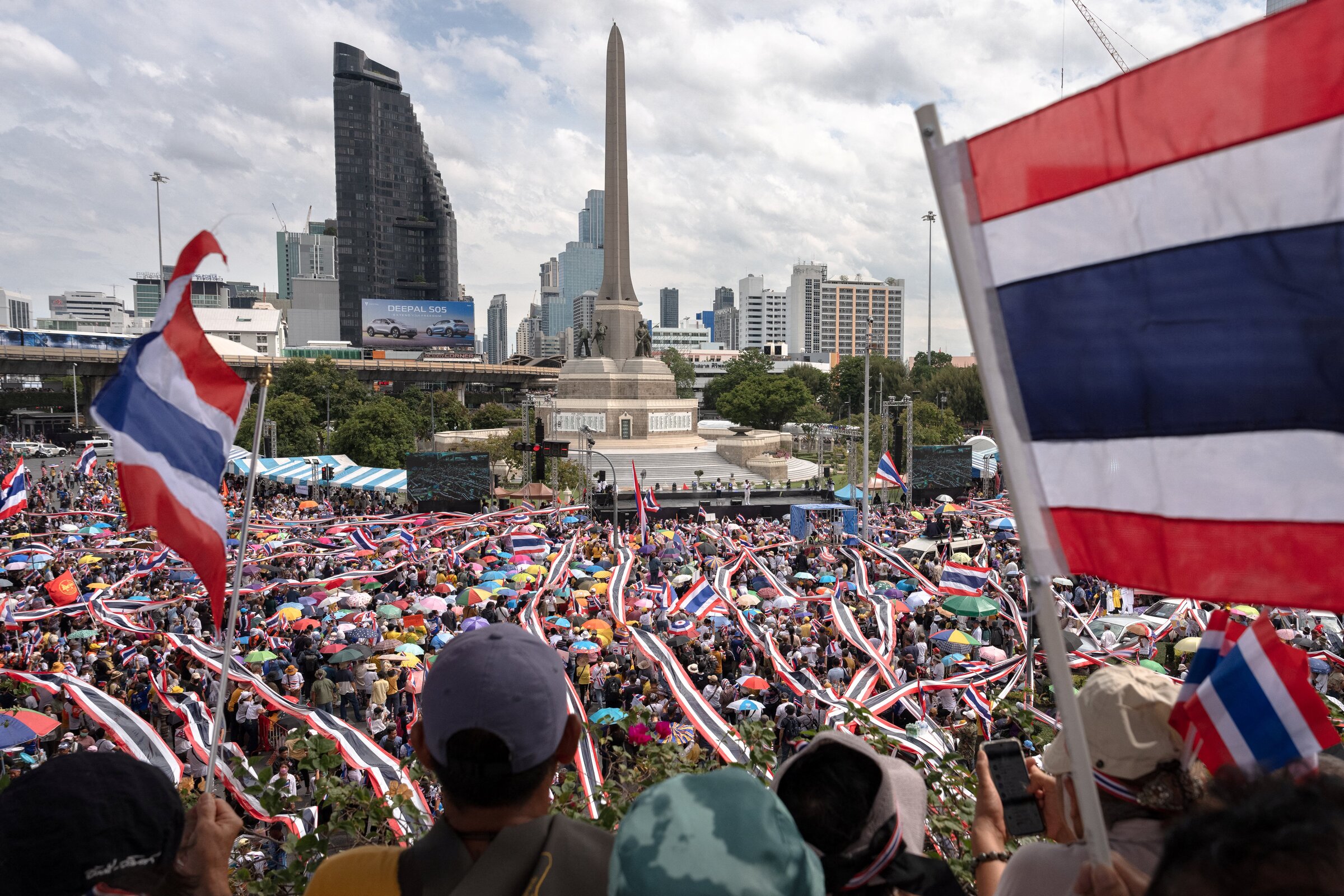 |
Thai protesters in Bangkok on 28/6. Photo: AFP |
Thai protesters in Bangkok on 28/6. Photo: AFP
In this context, foreign investors need strong government leadership to maintain confidence in the Thai market. Political stability is therefore crucial for Thailand.
"A government on the brink is unlikely to be able to make the strategic, long-term decisions needed to fix the economy," Cheng said.
Observers believe Thailand needs to address its political issues before tackling other policy matters. This requires understanding and unity among the partners in the ruling coalition to prioritize government stability and policy continuity over political interests.
However, they see no "effective solution" for Thailand amid the current turmoil, as it is unclear when the Constitutional Court will issue its ruling on Paetongtarn's political fate.
Thuy Lam (CNA, Bangkok Post)







